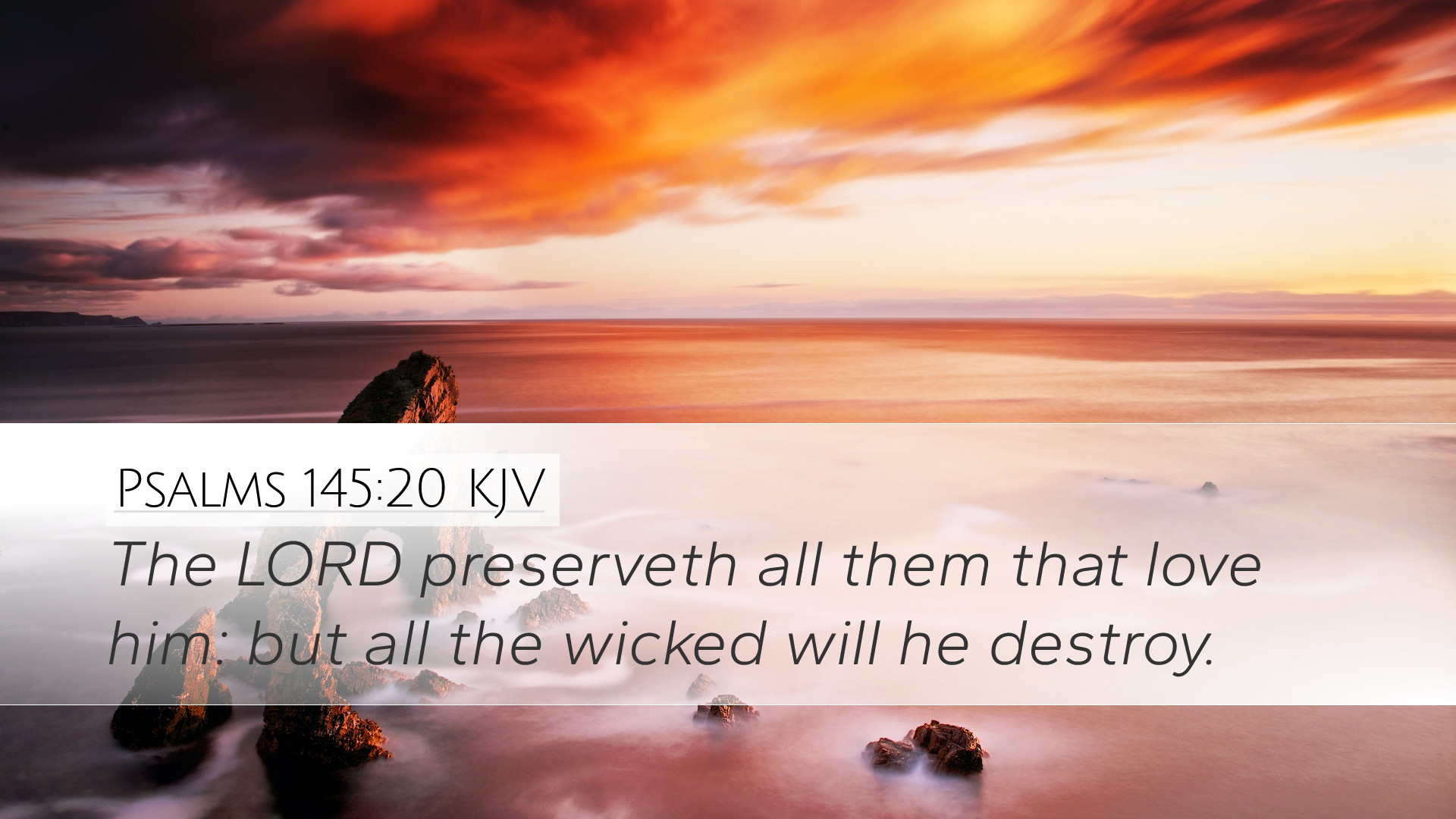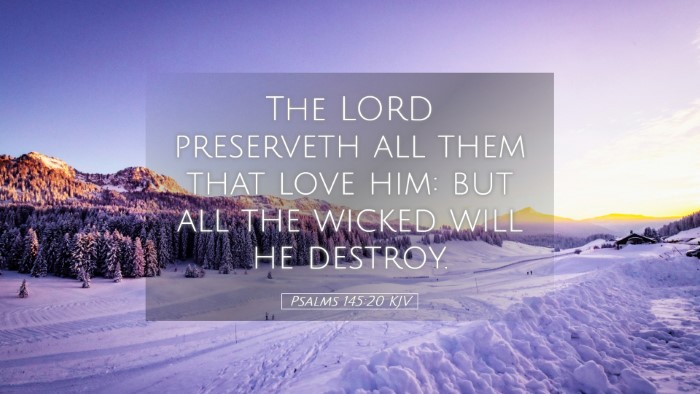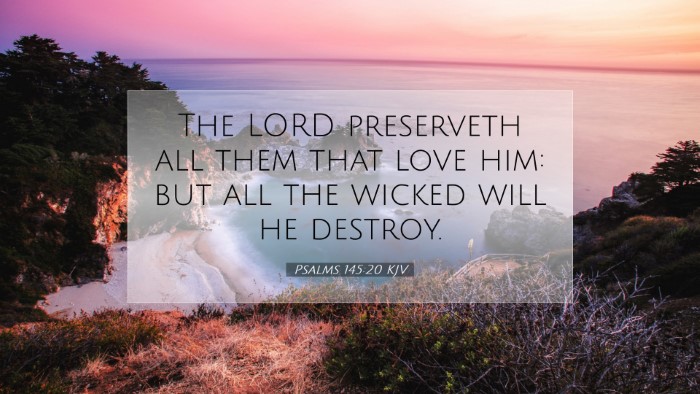Psalms 145:20 - Commentary and Insights
Verse: "The LORD preserves all who love him, but all the wicked he will destroy."
Introduction
The verse from Psalms 145:20 encapsulates the divine protection offered to those who love God, juxtaposed against the fate of the wicked. This duality in God’s relationship with humanity emphasizes His character as both a protector and a judge.
Understanding the Text
This verse operates within the broader context of Psalm 145, which is a celebration of God's greatness and goodness. As we explore this passage, it is essential to recognize the themes of love, preservation, destruction, and the nature of God’s justice.
Divine Preservation
God’s Protection: The text begins with a declaration of God's commitment to preserve those who love Him. Matthew Henry notes that this preservation encompasses both spiritual and physical aspects, asserting that God’s divine favor shields His faithful followers from various perils.
- Spiritual Preservation: Albert Barnes comments that loving God equates to obedience and devotion, implying that those who love Him will be guided and sustained in their spiritual lives.
- Physical Preservation: Adam Clarke suggests that this preservation can also manifest in tangible blessings and deliverance from troubles that might afflict the righteous.
The Nature of Love
The love mentioned in this verse is not merely an emotional attachment but implies a covenant relationship characterized by trust, reverence, and commitment. Those who truly love God are engaged in worship and service, consistently seeking to align their lives with His will.
- Active Engagement: This love demands action, as Henry points out that a true lover of God will exhibit fruits of that love through their conduct and relationship with others.
- Response to Grace: Barnes emphasizes that this love is a response to God’s grace, showcasing how understanding God’s mercy and holiness leads individuals to love Him genuinely.
The Wicked’s Fate
In contrast to the preservation of those who love God, the text sternly proclaims the destruction of the wicked. This duality highlights the moral order established by God, where love leads to life and righteousness leads to judgment.
- God’s Justice: Clarke reflects on how the destruction of the wicked is a manifestation of God's justice. It serves as a warning against rebellion and unrepentant sin.
- Consequences of Rejection: Barnes notes that this destruction is the natural consequence of choosing a path away from God, underscoring that God’s judgment is not arbitrary but results from free will decisions.
Theological Implications
This verse invites deep theological reflection on the nature of God’s sovereignty, human agency, and the eternal consequences of our choices. The preservation of the righteous is a testament to God's grace, while the destruction of the wicked reflects His holiness and justice.
- The Sovereignty of God: The affirmation of God's preservation and judgment reinforces the belief in His supreme authority over creation.
- Human Agency: The text acknowledges individual choice, suggesting that our relationship with God is determined by our love and response to Him.
Practical Applications
For pastors, scholars, and students of the Bible, this passage serves as both a source of comfort and a call to action. It poses critical questions regarding one’s personal relationship with God and an urgent reminder about the need for evangelism and moral living.
- Encouragement for Believers: Understanding the assurance of God’s preservation can bolster confidence in believers that they are continually under His care, inspiring a life of faithful service.
- Warning for the Wicked: This verse should evoke deep concern for those who live apart from God, urging believers to confront the reality of sin and the consequences that follow.
Conclusion
Psalms 145:20 encapsulates profound truths about God's character and our response as His creation. It calls believers to deepen their love for God, nurtures their assurance of His preservation, and compels a serious reflection on the fate of the wicked. In a world filled with uncertainty, this verse serves as a powerful reminder of God's unwavering commitment to those who love Him, while also upholding the reality of His justice.


